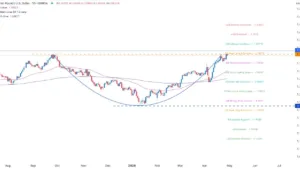
South Africa Takes the Lead—Will Others Follow?
Buying and selling sign suppliers function in a difficult house. If the suggestions are direct purchase or promote alerts, they might ideally require a monetary advisor licence in lots of jurisdictions. In a really attention-grabbing manner, South Africa grew to become the primary nation to mandate a licence for sign suppliers. Nevertheless, the native regulator didn’t simply concern a notification for sign suppliers, mentioning the requirement for a license. Quite, it imposed an administrative penalty of over 1 million rand (about US$57,000) on a foreign exchange sign supplier and clarified the necessary requirement of acquiring a license.
Monetary advisors supply funding and monetary planning, contemplating threat tolerance and private targets, whereas buying and selling sign suppliers concentrate on short-term market alternatives, providing purchase and promote suggestions primarily based on evaluation. Whereas monetary advisors are strictly regulated, the sign supplier companies function in a gray space, and principally don’t maintain any license.
The South African Monetary Sector Conduct Authority (FSCA) clarified that “the apply of offering or publishing alerts with regards to on-line buying and selling in monetary merchandise falls inside the definition of monetary companies within the FAIS Act, and as such, individuals offering such signals require a financial services provider licence.”
Many native business specialists have welcomed determination. Jimmy Moyaha, Founder and MD of Lebowa Capital, agrees with the regulator’s stance and informed Finance Magnates that “alerts are advisory in nature.”
“Sign provision is the service of offering investment-related suggestions to traders,” he stated. “This service is seen as advisory, as every of the above choices stays a discretionary determination, and influencing that discretion is seen as offering recommendation.”
The Way forward for Sign Suppliers
The definition of sign suppliers stays imprecise. Though South Africa requires sign suppliers to have a licence, the state of affairs is unclear in different jurisdictions, even main ones. Most regulators are looking for a center floor between classifying sign suppliers and monetary advisors.
The UK already has some regulatory provisions regarding sign suppliers, whereas Australia’s ASIC requires monetary service suppliers to acquire acceptable licences in the event that they interact in actions resembling offering monetary recommendation or dealing in monetary merchandise. ASIC’s actions in opposition to a number of monetary influencers additionally clarified how the regulator desires to manage this business.
A number of years in the past, a UK High Court also sided with the FCA in a case against a forex signal provider, discovering illegal actions because the platform had suggested on investments with out authorisation, and made false or deceptive monetary promotions.
“Regulators just like the FCA and ASIC have already made it clear that they’ll do what is important to guard retail traders, so it might not be shocking to see them take a web page out of the FSCA’s e-book sooner or later,” Moyaha added. “As it’s, different regulators impose stricter leverage restrictions to guard shoppers. Safeguarding traders stays a prime precedence for regulators.”
“We Do Not Provide Funding Recommendation.” Many monetary influencers, generally referred to as finfluencers, have additionally attracted the eye of regulators. Nevertheless, categorising them as sign suppliers is advanced.
“One can declare that finfluencers are also de facto financial advisers, as lots of them present (fairly blatantly) monetary recommendation and capitalise on it,” stated Remonda Kirketerp-Møller, Founder and CEO of Muinmos. “Nevertheless, within the case of sign provision, there can be a fairly direct line between the sign and a few financial profit, making it simpler to name it a ‘service.’”
Many well-known corporations function within the inventory suggestion house, however they don’t supply buying and selling alerts. As a substitute, they use information to offer deeper insights into corporations. For instance, TipRanks affords a sentiment gauge, which assigns a rating to an organization’s inventory primarily based on varied parameters.
“TipRanks is just not a typical buying and selling sign supplier,” stated Joe Craven, International Head of Enterprise Options at TipRanks. “Quite, we glance to offer actionable insights to allow traders and merchants to resolve for themselves whether or not an funding or commerce is sensible.”
“We don’t supply funding recommendation and steer very away from that,” Craven careworn. “There’s a distinction between a sign being supplied and a sentiment gauge—one shouldn’t be confused with the opposite.” Final 12 months, Prytek acquired TipRanks for $200 million.
Most regulators would not have a transparent definition of sign suppliers. As an example, within the UK, whether or not somebody qualifies as a sign supplier relies on how their actions align with the broader idea of “funding recommendation” or different regulated monetary companies.
“Different regulators, like ASIC, have created particular classes resembling Digital Advice and ‘robo-advice’,” identified Sophie Gerber, Co-CEO of TRAction and Director of Sophie Grace. “These classes ought to match the standards for many sign suppliers.”
Some sign supplier corporations declare to not supply private suggestions. One such firm is Acuity Analysis, which offers alerts primarily based on basic market insights derived from professional Technical Analysts and superior AI-powered tools.
“Not like many sign suppliers out there, Acuity Analysis’s alerts are designed to empower merchants with goal, data-driven insights, serving to them make knowledgeable choices with out directing particular trades or participating in actions that would result in conflicts of curiosity,” stated Andrew Lane, Founder and CEO of Acuity. “This method ensures transparency and aligns with Acuity Buying and selling’s dedication to offering unbiased instruments for merchants.”
Though Acuity Analysis has a Monetary Conduct Authority (FCA) licence, Lane defined that “our buying and selling alerts are supplied on a non-suitable, non-recommended foundation, which means they don’t represent regulated funding recommendation beneath FCA guidelines or MiFID definitions. This distinction ensures that our companies stay inside the regulatory perimeter whereas permitting companies that use our alerts to function with out conducting regulated recommendation, supplied they adhere to the identical rules.”
“Can’t Regulate Exterior the Jurisdiction”
Many regulators require sign suppliers to acquire licences in some kind. Nevertheless, imposing guidelines on this area of interest inside the broader buying and selling business is difficult, notably as a result of most sign suppliers function globally.
Many sign suppliers are primarily based offshore and supply companies worldwide. Though their companies could fall beneath the regulatory purview of a rustic in the event that they market and supply companies to residents there, imposing guidelines on an offshore agency is sort of not possible.
“Regulators, as a rule, can’t regulate exterior their jurisdiction,” added Kirketerp-Møller.
Nevertheless, in keeping with Gerber, sign suppliers should concentrate on the restrictions that apply to the advertising and provision of their companies in every jurisdiction the place they aim or settle for shoppers, as “it’s fairly widespread for regulators to achieve out to suppliers who’re advertising of their jurisdiction or whom they know have shoppers from their jurisdiction to question the premise on which they’re working.”
There may be additionally a connection between brokers and plenty of sign suppliers. As Lane highlighted, many sign suppliers providing companies on to the general public usually function as introducers or associates for brokers.
“These preparations continuously contain compensation tied to first-time deposits or buying and selling quantity, and in some circumstances, introducers could even obtain a share of ‘b-book’ profits,” he added. “Such practices can create conflicts of curiosity, making it troublesome to determine respected suppliers who stay unbiased and agnostic.”
Moyaha additionally confirmed this facet of the signal-providing enterprise, including: “Brokerages usually incentivise sign suppliers to execute by way of them by providing rebates or different monetary advantages. The logical step can be to put a stage of compliance and accountability on brokerages actively selling overseas sign suppliers. For these overseas sign suppliers instantly soliciting enterprise domestically, they need to be required to adjust to native rules. Buyers can solely be protected by the native ombudsman in the event that they cope with domestically regulated events.”
Buying and selling sign suppliers function in a difficult house. If the suggestions are direct purchase or promote alerts, they might ideally require a monetary advisor licence in lots of jurisdictions. In a really attention-grabbing manner, South Africa grew to become the primary nation to mandate a licence for sign suppliers. Nevertheless, the native regulator didn’t simply concern a notification for sign suppliers, mentioning the requirement for a license. Quite, it imposed an administrative penalty of over 1 million rand (about US$57,000) on a foreign exchange sign supplier and clarified the necessary requirement of acquiring a license.
Monetary advisors supply funding and monetary planning, contemplating threat tolerance and private targets, whereas buying and selling sign suppliers concentrate on short-term market alternatives, providing purchase and promote suggestions primarily based on evaluation. Whereas monetary advisors are strictly regulated, the sign supplier companies function in a gray space, and principally don’t maintain any license.
The South African Monetary Sector Conduct Authority (FSCA) clarified that “the apply of offering or publishing alerts with regards to on-line buying and selling in monetary merchandise falls inside the definition of monetary companies within the FAIS Act, and as such, individuals offering such signals require a financial services provider licence.”
Many native business specialists have welcomed determination. Jimmy Moyaha, Founder and MD of Lebowa Capital, agrees with the regulator’s stance and informed Finance Magnates that “alerts are advisory in nature.”
“Sign provision is the service of offering investment-related suggestions to traders,” he stated. “This service is seen as advisory, as every of the above choices stays a discretionary determination, and influencing that discretion is seen as offering recommendation.”
The Way forward for Sign Suppliers
The definition of sign suppliers stays imprecise. Though South Africa requires sign suppliers to have a licence, the state of affairs is unclear in different jurisdictions, even main ones. Most regulators are looking for a center floor between classifying sign suppliers and monetary advisors.
The UK already has some regulatory provisions regarding sign suppliers, whereas Australia’s ASIC requires monetary service suppliers to acquire acceptable licences in the event that they interact in actions resembling offering monetary recommendation or dealing in monetary merchandise. ASIC’s actions in opposition to a number of monetary influencers additionally clarified how the regulator desires to manage this business.
A number of years in the past, a UK High Court also sided with the FCA in a case against a forex signal provider, discovering illegal actions because the platform had suggested on investments with out authorisation, and made false or deceptive monetary promotions.
“Regulators just like the FCA and ASIC have already made it clear that they’ll do what is important to guard retail traders, so it might not be shocking to see them take a web page out of the FSCA’s e-book sooner or later,” Moyaha added. “As it’s, different regulators impose stricter leverage restrictions to guard shoppers. Safeguarding traders stays a prime precedence for regulators.”
“We Do Not Provide Funding Recommendation.” Many monetary influencers, generally referred to as finfluencers, have additionally attracted the eye of regulators. Nevertheless, categorising them as sign suppliers is advanced.
“One can declare that finfluencers are also de facto financial advisers, as lots of them present (fairly blatantly) monetary recommendation and capitalise on it,” stated Remonda Kirketerp-Møller, Founder and CEO of Muinmos. “Nevertheless, within the case of sign provision, there can be a fairly direct line between the sign and a few financial profit, making it simpler to name it a ‘service.’”
Many well-known corporations function within the inventory suggestion house, however they don’t supply buying and selling alerts. As a substitute, they use information to offer deeper insights into corporations. For instance, TipRanks affords a sentiment gauge, which assigns a rating to an organization’s inventory primarily based on varied parameters.
“TipRanks is just not a typical buying and selling sign supplier,” stated Joe Craven, International Head of Enterprise Options at TipRanks. “Quite, we glance to offer actionable insights to allow traders and merchants to resolve for themselves whether or not an funding or commerce is sensible.”
“We don’t supply funding recommendation and steer very away from that,” Craven careworn. “There’s a distinction between a sign being supplied and a sentiment gauge—one shouldn’t be confused with the opposite.” Final 12 months, Prytek acquired TipRanks for $200 million.
Most regulators would not have a transparent definition of sign suppliers. As an example, within the UK, whether or not somebody qualifies as a sign supplier relies on how their actions align with the broader idea of “funding recommendation” or different regulated monetary companies.
“Different regulators, like ASIC, have created particular classes resembling Digital Advice and ‘robo-advice’,” identified Sophie Gerber, Co-CEO of TRAction and Director of Sophie Grace. “These classes ought to match the standards for many sign suppliers.”
Some sign supplier corporations declare to not supply private suggestions. One such firm is Acuity Analysis, which offers alerts primarily based on basic market insights derived from professional Technical Analysts and superior AI-powered tools.
“Not like many sign suppliers out there, Acuity Analysis’s alerts are designed to empower merchants with goal, data-driven insights, serving to them make knowledgeable choices with out directing particular trades or participating in actions that would result in conflicts of curiosity,” stated Andrew Lane, Founder and CEO of Acuity. “This method ensures transparency and aligns with Acuity Buying and selling’s dedication to offering unbiased instruments for merchants.”
Though Acuity Analysis has a Monetary Conduct Authority (FCA) licence, Lane defined that “our buying and selling alerts are supplied on a non-suitable, non-recommended foundation, which means they don’t represent regulated funding recommendation beneath FCA guidelines or MiFID definitions. This distinction ensures that our companies stay inside the regulatory perimeter whereas permitting companies that use our alerts to function with out conducting regulated recommendation, supplied they adhere to the identical rules.”
“Can’t Regulate Exterior the Jurisdiction”
Many regulators require sign suppliers to acquire licences in some kind. Nevertheless, imposing guidelines on this area of interest inside the broader buying and selling business is difficult, notably as a result of most sign suppliers function globally.
Many sign suppliers are primarily based offshore and supply companies worldwide. Though their companies could fall beneath the regulatory purview of a rustic in the event that they market and supply companies to residents there, imposing guidelines on an offshore agency is sort of not possible.
“Regulators, as a rule, can’t regulate exterior their jurisdiction,” added Kirketerp-Møller.
Nevertheless, in keeping with Gerber, sign suppliers should concentrate on the restrictions that apply to the advertising and provision of their companies in every jurisdiction the place they aim or settle for shoppers, as “it’s fairly widespread for regulators to achieve out to suppliers who’re advertising of their jurisdiction or whom they know have shoppers from their jurisdiction to question the premise on which they’re working.”
There may be additionally a connection between brokers and plenty of sign suppliers. As Lane highlighted, many sign suppliers providing companies on to the general public usually function as introducers or associates for brokers.
“These preparations continuously contain compensation tied to first-time deposits or buying and selling quantity, and in some circumstances, introducers could even obtain a share of ‘b-book’ profits,” he added. “Such practices can create conflicts of curiosity, making it troublesome to determine respected suppliers who stay unbiased and agnostic.”
Moyaha additionally confirmed this facet of the signal-providing enterprise, including: “Brokerages usually incentivise sign suppliers to execute by way of them by providing rebates or different monetary advantages. The logical step can be to put a stage of compliance and accountability on brokerages actively selling overseas sign suppliers. For these overseas sign suppliers instantly soliciting enterprise domestically, they need to be required to adjust to native rules. Buyers can solely be protected by the native ombudsman in the event that they cope with domestically regulated events.”









